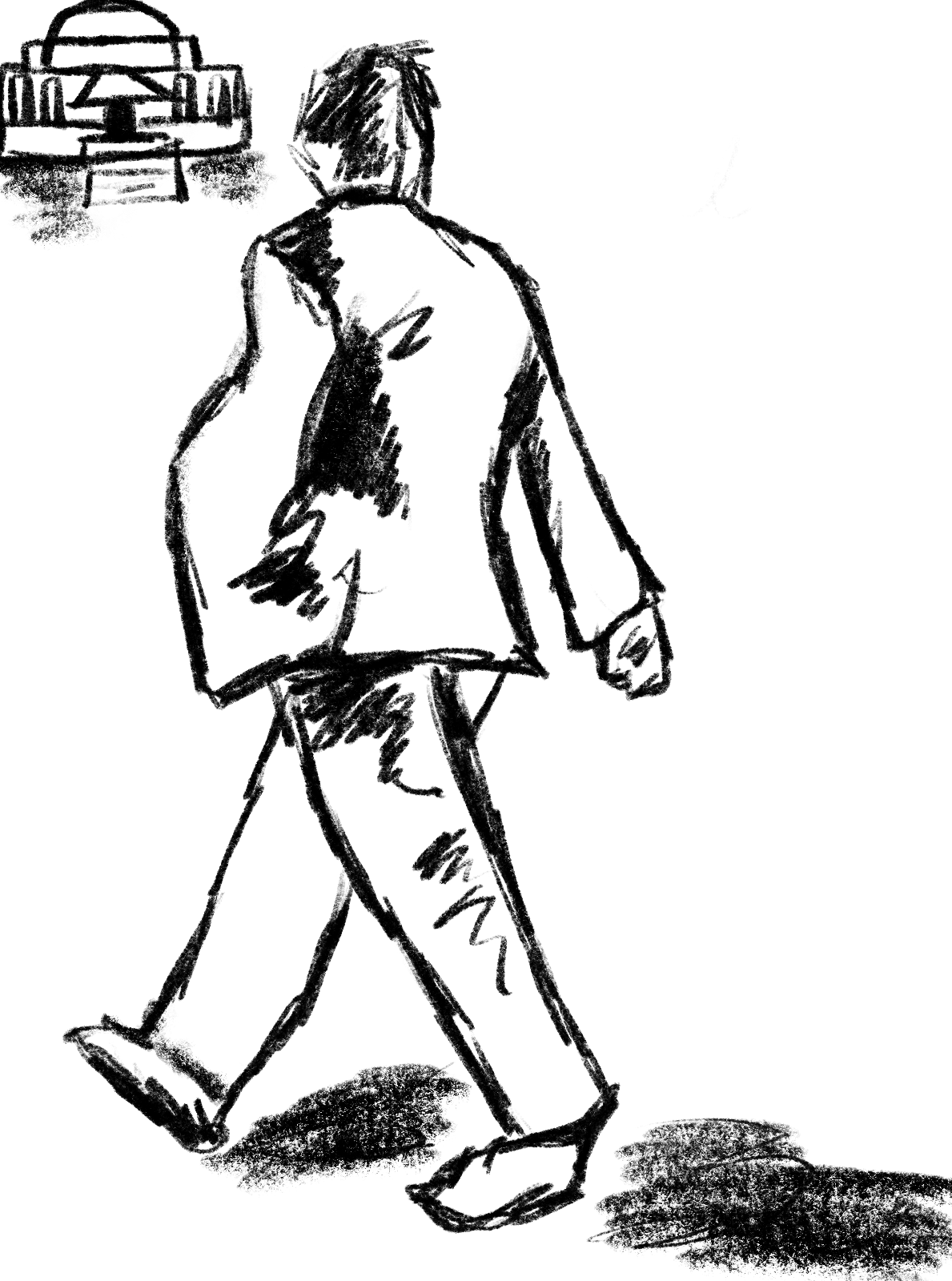Welcome to America
September 20, 2024
 Chayma Charifi
Chayma CharifiIf you told me a year ago that in my junior fall, I would be studying abroad, I would have probably shaken my head, puzzled. But if you said to me that I would be traveling to three countries across three continents, exploring four major cities and multiple neighboring regions, taking at least ten planes and sleeping in over 12 beds, I would likely have had a mini panic attack for my future self. (In fact, the travel health doctor I visited this August had that reaction for me.)
A year ago, I had no intentions of leaving Bowdoin during my four years. I had a coordinate major in environmental studies and could never imagine myself traveling around the world alone. Now, I’ve dropped my double major (sorry environmental studies department) and instead picked up a semester of organized chaos in Washington, D.C., India, South Africa and Argentina to study public health.
In many ways, this experience epitomizes the antithesis of how I typically live my life: Three months of living out of a suitcase without a consistent schedule would typically send me into a spiral. And honestly, it probably still will from time to time. But this year, I’m ready to leave the comfort of the Bowdoin bubble behind and learn from people living completely different lives from my own.
Public health was a passion of mine in high school, but as my interests grew deeper into neuroscience and research, I lost sight of what health means in a broader context. I realized I could spend my whole life contributing to drug discovery research without knowing how individuals will be able to access those medications or what care they will receive from the healthcare system for their condition. This semester, I hope to humanize my education and explore alternatives to the American view of health.
Even just a few hours from home, I learned so much from just ten days in our nation’s capital. The United States spends more money on healthcare, both per person and as a share of its gross domestic product, than any other country in the world but experiences worse health outcomes than its high-income country peers. Health outcomes are far from equal across this country and vary even between the wards of Washington, D.C. While residents of Ward 3, a predominantly white area where Georgetown University is located, have an average life expectancy of 86 years, those in the predominantly Black Ward 8 live 70.5 years on average. With 97 percent of D.C. residents insured by private or public healthcare, most of these disparities are determined by social, structural and physical barriers, known as social determinants of health.
When visiting Anacostia, a neighborhood in Ward 8, I met Jami, a lifetime resident of Anacostia who has run a combination storefront and radio station for 13 years. Jami reframed my perspective of the cyclical and interconnected nature of health outcomes in low-income and minority areas.
“Healthwise, it pretty much sucks out here,” he said. “They don’t give a f— about us.”
He continued to describe that while half-filled, unaffordable condominium complexes and new predatory banks pop up by the week, local businesses and residents are left helpless. Many Anacostia natives live in patterns of homelessness and drug abuse, perpetuated by government neglect and poverty. These factors lead to detrimental health outcomes like HIV epidemics, food insecurity and mental health crises.
“You need to give people opportunities for them to get opportunities,” Jami said.
And Jami does just that. He organizes a weekly market for local businesses where youth can sell art and jewelry to fund their future. He also administers Narcan to anyone he sees undergoing an opioid overdose and offers fentanyl strips and AIDS testing to people at his storefront 24/7. Jami mentors his community as a vigilante health champion because, in his absence, no organizations or governments will provide these services.
“I have taken probably more than 100 guns from children off the streets. People sell kids guns in this neighborhood to get away with murder. Tell me how a ten-year-old kid is being charged with murders from the 1960s,” he said. “I destroy those guns with a big machine in my basement and make jewelry with the metal powder that I sell.”
In the absence of structural systems that provide adequate health, I witnessed D.C. communities come together to be the support system that they need. Jami is one of many individuals across the country who, despite living in poverty himself, is taking on the health of his community and redirecting the trajectory of kids’ futures.
My days in D.C. taught me that even in the nation’s capital, a thriving community support system can sometimes change a person’s health more than a law or a prescription. At a free Afro-Latino dance workout class at the Columbia Heights Recreation Center, I met a group from diverse backgrounds and age groups who bolstered each other’s mental health through their shared passion for dance.
“This class has saved many of our lives by building community and our mental health,” a woman who has attended the class for five years explained.
Health encompasses each aspect of our lives, and each element of our life can contribute to our health. On my first day of class, I was told that this semester would teach me a new way of being and seeing, and I hope to pass on some of the perspectives I’ve gained through this journey with the Bowdoin community. So here it is! I hope you enjoy “This is Health Too.”

Comments
Before submitting a comment, please review our comment policy. Some key points from the policy: